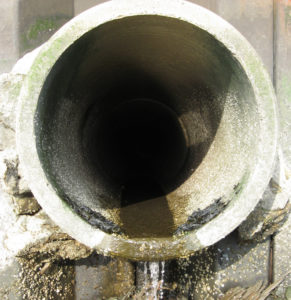
via Kate Boicourt | IAN
In many parts of Milwaukee, stormwater is shuttled directly to rivers and Lake Michigan. Wastewater is dealt with separately and sent to a treatment plant for processing.
But Sandra McLellan of the University of Wisconsin, Milwaukee, says the infrastructure is aging.
“Many of the pipes that are taking waste from our homes that should be going to the wastewater treatment plant are leaking, are failing,” she explains.
She says as a result, waste can leach into the soil. Then when it rains, it can enter the stormwater system, and end up in waterways.
So McLellan’s team has developed new techniques to find the source of the pollution and assess the level of risk, so cities can prioritize repairs.
Get Schooled:
- Read up on McLellan’s work with the city to identify the sources of fecal pollution, from Great Lakes Echo.
- Learn more about the repairs needed for Milwaukee’s water and sewer systems, from the Journal Sentinel
- Read more about Milwaukee’s sewer history, from Milwaukee Riverkeeper.
Hear Sandra McLellan explain why wastewater outfalls – in areas with or without combined systems – may have sewage contamination:
The fine print:
- This segment was produced in partnership with Cornell University’s Atkinson Center for a Sustainable Future




